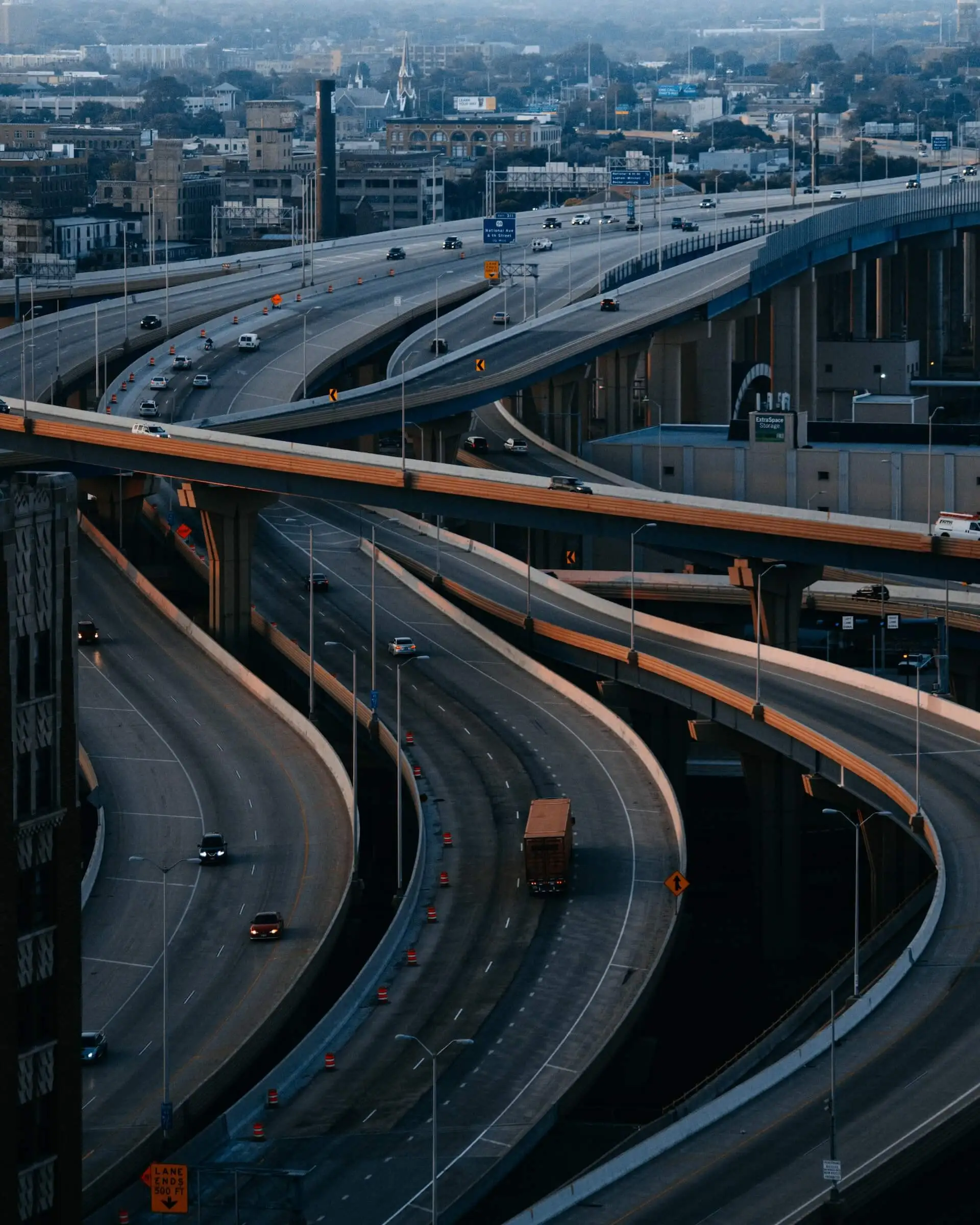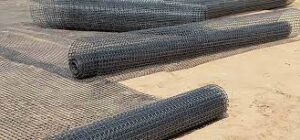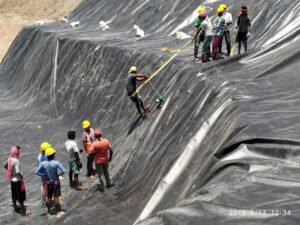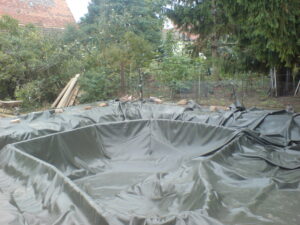Case Study: Landslide Prevention Project in Uttarakhand Using Rockfall Barrier
Introduction
Uttarakhand, a region known for its breathtaking landscapes and challenging terrains, often grapples with the devastating effects of landslides. These landslides not only disrupt lives but also pose severe threats to infrastructure and the environment. In response to these challenges, Ocean Non Wovens, a leading geosynthetics manufacturer and supplier, undertook a critical landslide prevention project in Uttarakhand, deploying advanced Rockfall Barriers. This case study delves into the specifics of the project, the technology used, and the impact of our solutions on mitigating landslide risks.
Understanding the Challenge
Landslides in Uttarakhand are primarily triggered by a combination of steep slopes, loose soil, and heavy rainfall. These landslides often lead to the destruction of roads, bridges, and buildings, causing significant economic losses and endangering lives. Traditional methods of landslide prevention, such as retaining walls and drainage systems, have proven to be insufficient in many cases due to the region’s unique geological characteristics.
The primary challenge in this project was to design and implement a solution that could effectively prevent rockfalls and landslides in one of the most vulnerable areas in Uttarakhand. The solution needed to be durable, adaptable to the terrain, and capable of withstanding extreme weather conditions.
The Solution: Rockfall Barriers
Rockfall Barriers are one of the most effective solutions for preventing landslides, especially in mountainous regions like Uttarakhand. These barriers are designed to intercept falling rocks and debris, preventing them from reaching roads, buildings, and other critical infrastructure.
Key Features of the Rockfall Barrier:
High Energy Absorption: Rockfall Barriers are engineered to absorb high levels of kinetic energy from falling rocks, minimizing the impact on the barrier and preventing damage to structures below.
Durability: Made from high-tensile steel wire, these barriers are highly durable and resistant to corrosion, ensuring long-term performance even in harsh weather conditions.
Flexibility: The barriers are designed to conform to the natural contours of the terrain, allowing for easy installation in challenging environments.
Low Maintenance: Once installed, Rockfall Barriers require minimal maintenance, reducing the overall cost of landslide prevention.
Project Implementation
The landslide prevention project in Uttarakhand involved a detailed assessment of the site, including geological surveys and risk analysis. Our team at Ocean Non Wovens worked closely with local authorities and engineers to design a customized Rockfall Barrier solution that met the specific needs of the region.
Steps Taken:
1. Site Assessment: Detailed geological surveys were conducted to identify the most vulnerable areas and the potential volume of rockfalls.
2. Design and Customization: Based on the survey data, a customized Rockfall Barrier system was designed, incorporating additional features to enhance durability and energy absorption.
3. Installation: The installation process involved anchoring the barriers to the rock face using high-strength steel cables and bolts. The flexibility of the design allowed the barriers to be installed along the natural contours of the terrain.
4. Testing and Monitoring: Post-installation, the barriers were subjected to rigorous testing to ensure they could withstand the predicted loads. Continuous monitoring was also established to assess the performance of the barriers over time.
Data and Impact
The success of this project is underscored by the data collected post-installation. Since the deployment of the Rockfall Barriers, the area has seen a 90% reduction in landslide-related incidents. The barriers have effectively intercepted multiple rockfalls, preventing significant damage to infrastructure and ensuring the safety of local communities.
Cited Data:
According to a study by the Geological Survey of India, Uttarakhand witnesses an average of 20 major landslides annually, many of which could be mitigated with the proper use of geosynthetics like Rockfall Barriers.
A report by the Indian Institute of Technology, Roorkee, highlights that more than 50% of the landslide-prone areas in Uttarakhand could benefit from advanced geosynthetic solutions, significantly reducing the risk of landslides.
Unique Insights
One of the often-overlooked aspects of landslide prevention is the importance of continuous monitoring and maintenance. While Rockfall Barriers are designed to be low-maintenance, regular inspections are crucial to ensure their long-term effectiveness. Additionally, integrating Rockfall Barriers with other geosynthetic solutions, such as erosion control blankets and geotextiles, can enhance the overall stability of the terrain, providing a multi-layered defense against landslides.
Another key insight is the role of community involvement in the success of such projects. Engaging local communities in the installation and maintenance process not only ensures better upkeep but also raises awareness about landslide risks and prevention measures.
Conclusion and Promotional Note
The Landslide Prevention project in Uttarakhand is a testament to the effectiveness of Rockfall Barriers in mitigating the risks associated with landslides. Ocean Non Wovens is proud to have played a critical role in protecting lives and infrastructure in this vulnerable region. Our commitment to innovation, quality, and sustainability ensures that our geosynthetic solutions are among the best in the industry.
At Ocean Non Wovens, we understand that every project is unique, and we are dedicated to providing customized solutions that meet your specific needs. Whether you are facing challenges with landslides, erosion, or any other geotechnical issue, our team of experts is here to help. Contact us today to learn more about how our products can safeguard your projects and ensure long-term success.



